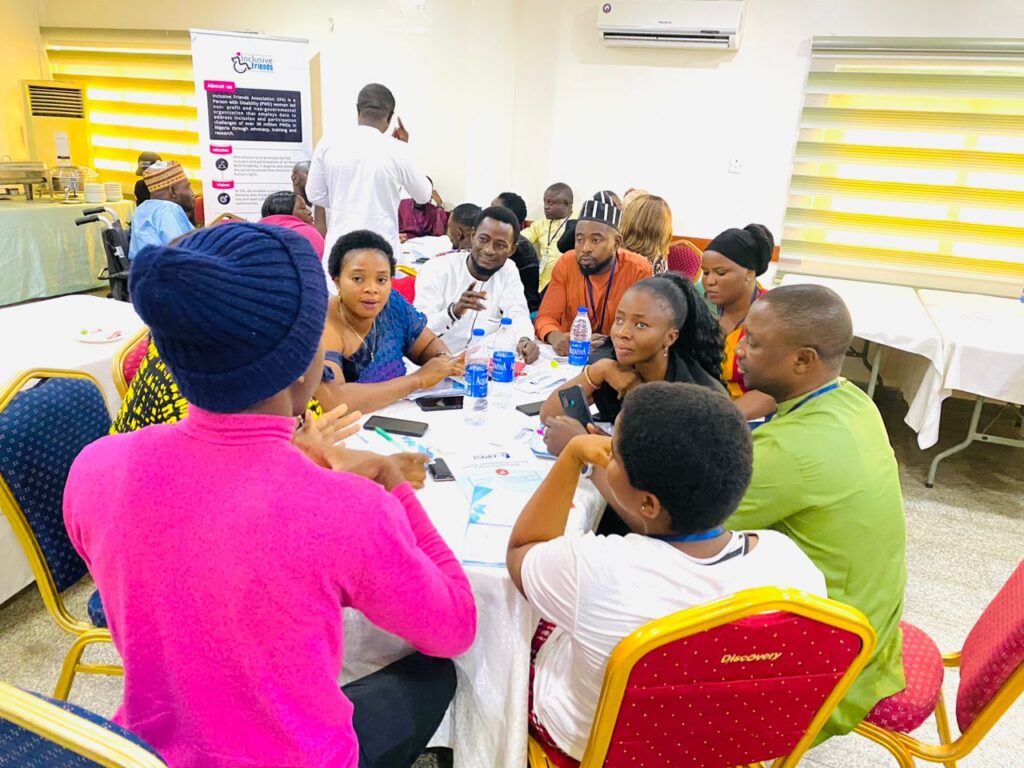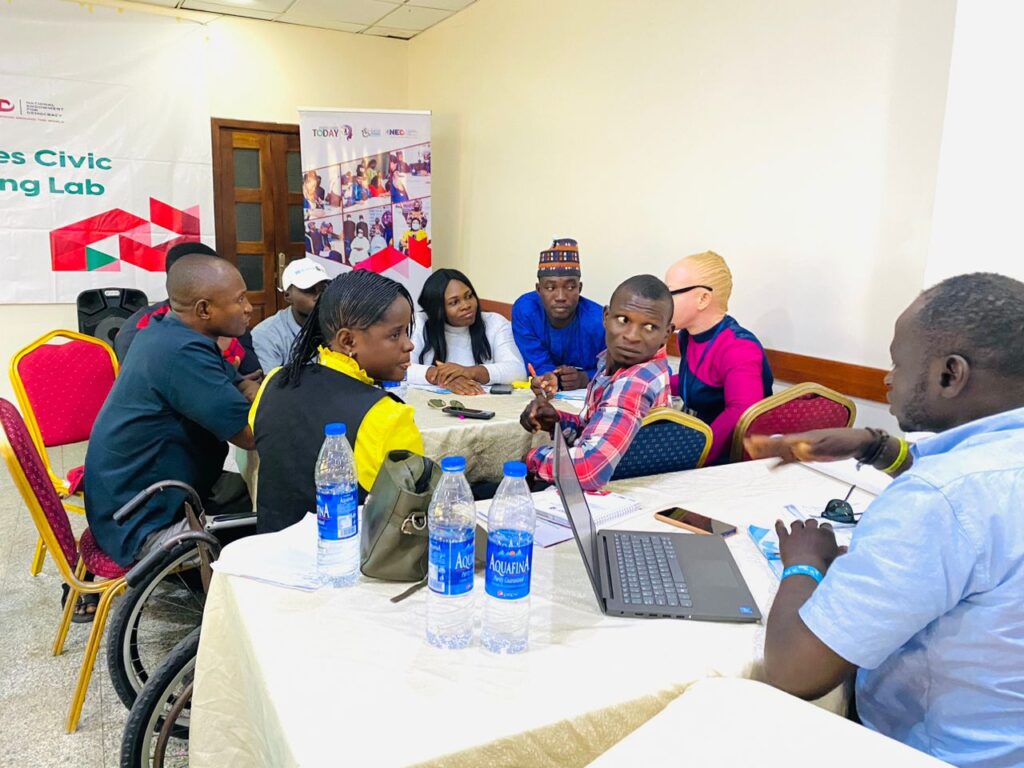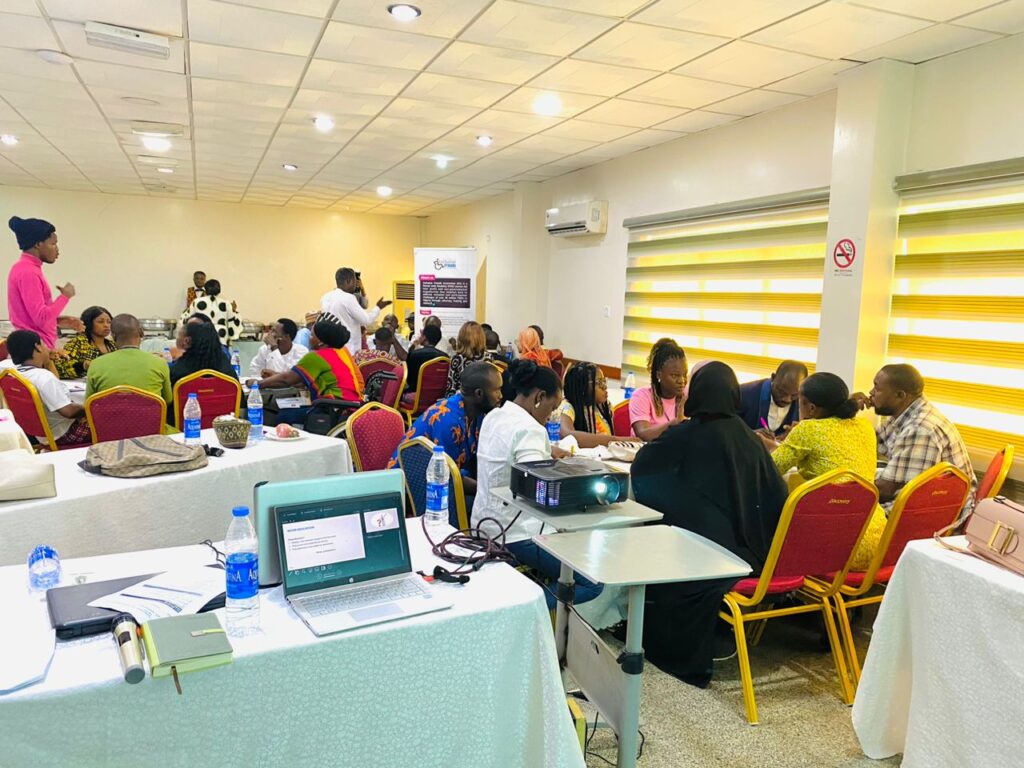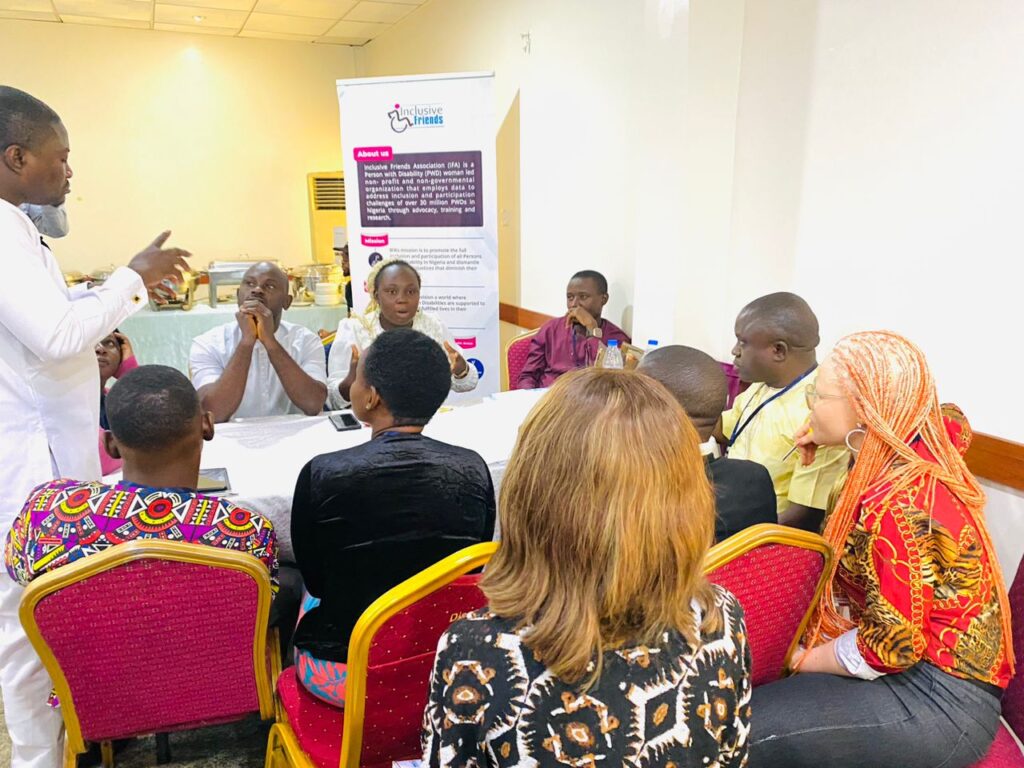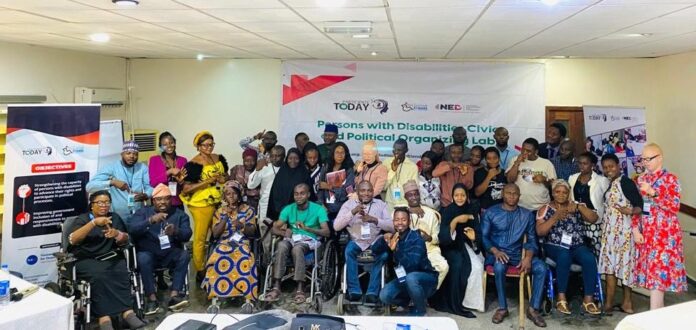Inclusive Friends Association(IFA) on 25th to 27th of October, 2022 organized PWD Civic and Political Organizing Lab Training supported by the National Endowment for Democracy.
The training which is part of IFA’s Participate Today project provided opportunity for IFA to bring together leaders in disability community from different clusters of disability to enhance their capacity on civic engagement and political participation.
Mr. Stephen Idoko, the program officer at IFA and the project officer of the project told The Qualitative Magazine (TQM) that the idea behind the project is that Democracy is a form of government that allows citizens to make choices and elect leaders who would hold the power given to them by citizens, and make policies and decisions that improve the quality of lives of citizens.
“Sadly, Nigerian PWDs who are a part of the electorate are not included in Nigeria’s political and public life. This has resulted in reduced participation of persons with disabilities (PWDs) in Nigeria’s electoral and political spaces”.
Speaking further, he said that the training is impactful on the participants because PWDs and other Civil Society Organization (CSOs) have increased capacity (knowledge, skills, and attitudes) to conduct voter education, civic and political campaigns as well as community organizing: In this last quarter, the project trained over 200 PWDs, 30 Media organizations and the Joint National Association of Persons with Disabilities on running effective political and civic campaigns as well as building a community/network for political solidarity and advocacy, to facilitate the implementation of the Disability Act at the national and sub-national level.
It also created opportunities for PWDs who are interested in running for offices to learn how to engage the political parties to commit in reforming party structures for inclusive administration.
“Political parties’ understanding of the issues impeding the political participation of PWDs was deepened”.
The participants were also enlightened on the provisions of the Discrimination Against Persons with Disabilities (Prohibition) Act. The Increasing Access Radio Program featured discussions around Section 3 of the Discrimination Against Persons with Disabilities (Prohibition) Act while steering public discuss on the provisions that foster inclusion of PWDs governance.
Speaking on factors mitigating against the Participation of PWDs in Civic and Political activities, Stephen said that The World Health Organization (WHO) estimates that about 15% of the world’s population live with some form of disability. If Nigeria’s population in 2019 as estimated by the National Population Commission (NPC) is 190 million [2], then about 28.5 million Nigerians have a disability. This number is more than the total votes cast for both the All Progressives Congress (APC) and the Peoples’ Democratic Party (PDP) in the 2019 general elections. Unfortunately, these 28.5 million Nigerians have continued to face barriers to full and equal enjoyment of their human rights and respect for their dignity.
“To guarantee the human rights of PWDs in this new decade, both government and citizens have roles and responsibilities to play. Following nine years of advocacy by organizations of persons with disabilities (OPDs), the Nigerian government passed the Discrimination against Persons with Disabilities (Prohibition) Act, 2019 known as the national disability law. The comprehensive, national law covers issues of discrimination; awareness raising; political participation, etc”.
“The Nigerian constitution provides for a secret ballot system for all citizens, sadly, PWDs especially those using wheelchairs in Nigeria have never enjoyed this as most of them either use benches or other platforms to thumbprint on their ballot papers. In addition to this legal instrument at the national level, over 10 states in Nigeria – Ekiti, Plateau, Lagos and Bauchi – have all passed legislation to protect the rights of PWDs, while others have established Disability Rights Commission or agencies/boards to oversee the full inclusion of PWDs in the states”.
“Few states are also responding and providing employment for PWDs. The agenda for the government is the full implementation of policies to guarantee the rights and inclusion of PWDs. This can only be achieved through a strategic policy engagement with various state governments / institutions and the INEC to guarantee their political and public rights”.
One of the participants, Aver Akighir, told TQM that the training gave her an insight on how she will sensitize PWDs who have never voted before to go out and vote, and importance “of them voting.
“Secondly, as a disability leader, I am a Campaign Council member of a Governorship candidate in my State Benue, Initially, I don’t know what to do exactly but with this training, I am now well equip for the task head and I must make sure that disability issues reflect in the programmes and agenda in his manifesto.
The participants were taken through interesting topics such as A clear strategy to include PWDs in Nigeria’s Political Party Structure and the Implementation of the Disability Act in Nigeria and Political Party Organizing Stakeholders power mapping and communication facilitated Bem Aga, Programs Director, National Democratic Institute NDI, Understanding Disability facilitated by Grace Jerry, the Executive Director, IFA; Advocacy campaigns, Community Organizing and building relationship for power influence facilitated by Sofie Bichi, the head of knowledge Management Voter and Learning, Yiaga Africa; Civic, and Political education and Messaging and Content Creation facilitated by Lazarus Apir, Advocacy Manager, SCALE Project Palladium.
